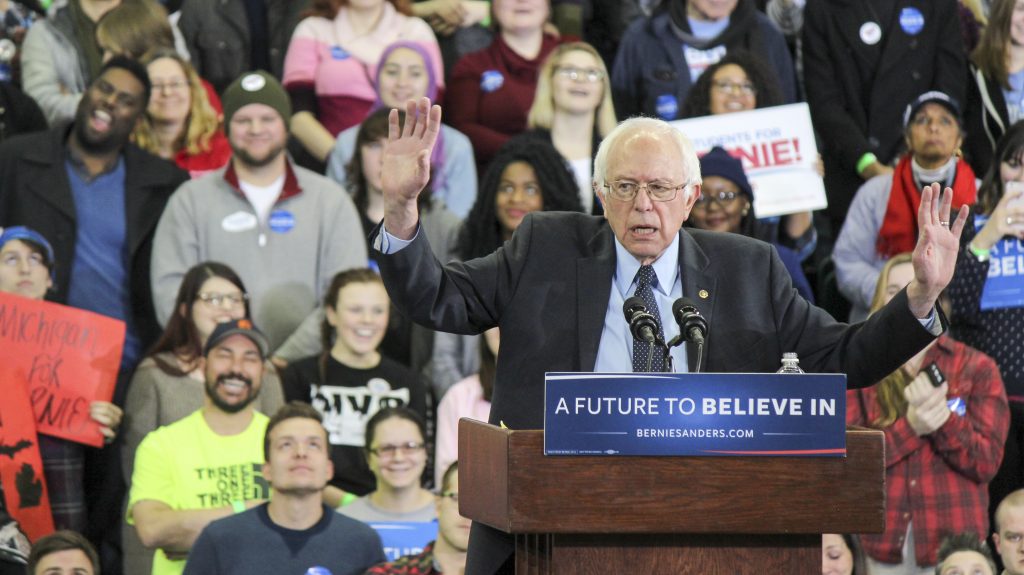Is Free College Tuition Possible in Michigan?
Experts talk college affordability and evaluate presidential candidates’ plans.

The average four-year college graduate in Michigan has almost $30,000 in student debt. That ranks ninth in the nation. That’s according to the Institute for College Access and Success.
Meanwhile, presidential candidates are pitching their plans to make college more affordable. Sen. Bernie Sanders (D-VT) says he has a plan to provide free tuition at public colleges and universities. He says he’d pay for it with a new tax on Wall Street speculation.
Detroit Today host Stephen Henderson speaks with Betsy Mayotte, director of consumer outreach and compliance for American Student Assistance. She’s written about many of the candidate’s college affordability plans for U.S. News and World Report. She says it’s a critical issue for voters.
“While they’re still paying their own loans they also have to consider how they’re going to pay for their own children’s education,” says Mayotte. “So, this issue doesn’t just speak to one constituency, it speaks to almost all of the constituencies.”
Henderson also speaks with Dan Hurley, CEO of the Michigan Association of State Universities. In 2014, Hurley co-wrote a proposal to create a state-federal college affordability partnership. It’s goal would be to encourage states to invest more in public higher education.
“If there is going to be a game-changer reform in the years ahead, it’s going to involve some type of increased federal engagement on the issue of college affordability and some type of incentive-based program to encourage state to invest more,” says Hurley.
Hurley says he’s not sold on Sanders’ free college proposal.
“That is a laudable idea,” he says. “But given where we’ve been trending in recent years that may be so far off the charts in terms of fiscal feasibility, and even efficiency. I mean, college affordability is a huge issue, especially for those from low-income, middle-income backgrounds, but there still is a certain portion of the population that can afford college… Do we want to tax any stakeholder group when it might not be necessary to fund free college for everyone out there?”
To hear the full conversation, click on the audio link above.

